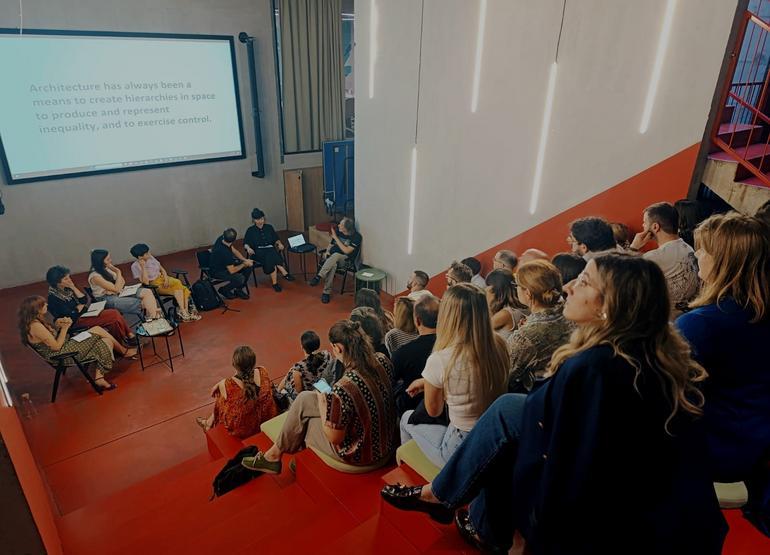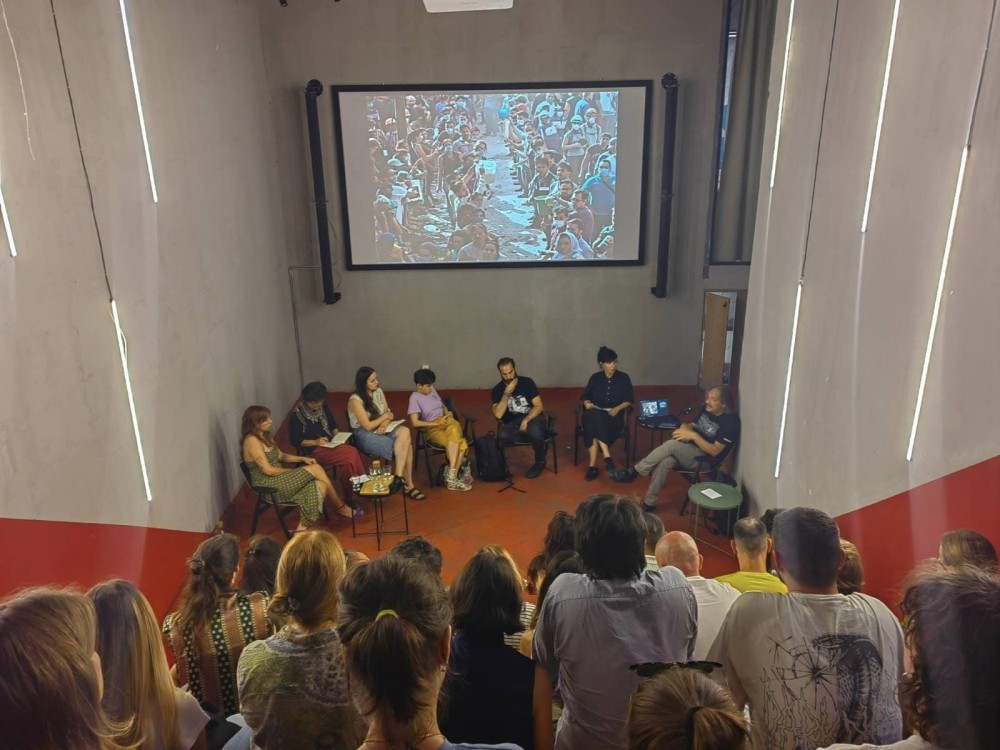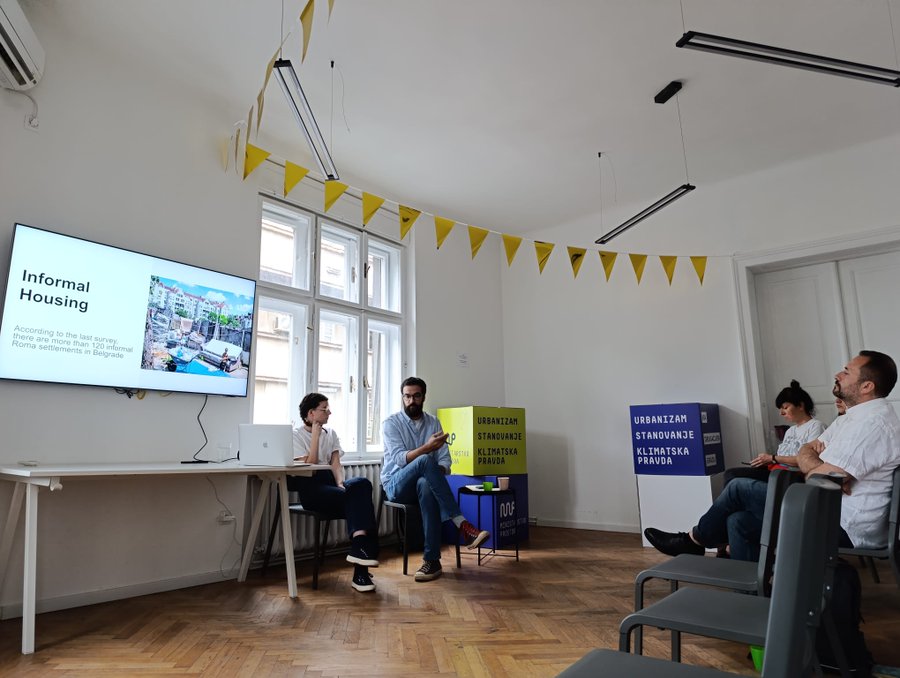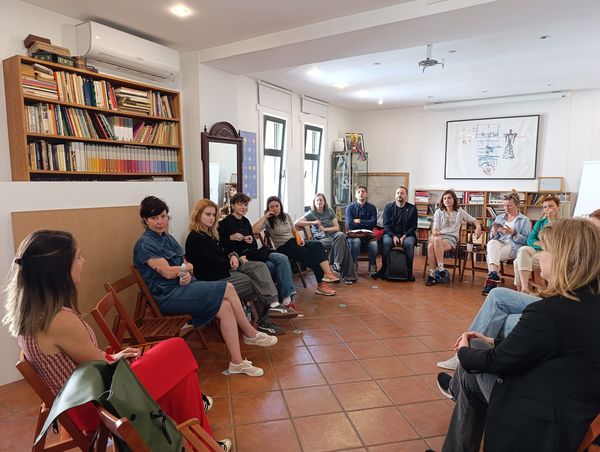
Public spaces was the focus of our Engaged Democracy Initiative regional gathering in Belgrade from June 11-14, 2024. By bringing together participants from across the Western Balkans, this format explored the ways and practices on how to exchange and work regionally on preserving urban commons:
- We have established a regional platform for engaged citizens and local initiatives involved in the fight for housing, public space, public services, art, and urban infrastructure, who are all faced with similar problems in the region.
The kick-off public workshop “Commoning Power: Towards emancipatory social changes” with prof. Stavros Stavrides from the National Technical University of Athens was a thought-provoking opening for the follow up discussion on redefining and reconquering the public spaces Prof. Stavrides was joined in a follow-up debate by Jovana Timotijevic (Ministry of Space, Serbia), Sidorela Vatnikaj (The right to the city, Albania), Svjetlana Nedimović (Rad za grad, Bosnia and Herzegovina), Ana Pinter (Magacin Cultural Space Belgrade), Dimitris Loupetis (Strefi Hill, Greece), and Sara Nikolić (IFTD, Serbia).

The Urban development of Belgrade: a retrospective of the past decade(s) session given by Jovana Timotijević, and hosted by the Ministry of Space, offered insights on the process of urban transformation and urbanization against expert views from Belgrade perspective, that can be easily applied to any other city in the region. The Cultural centre Magacin welcomed our EDI public spaces group to the guided tour and exchange dedicated to the Urban commons: theory and practice of collective production and management of space. We zoomed into the urban commons through practical examples of joint management of alternative spaces like Magacin that creates new coalitions of solidarity and shared responsibility for preserving the public spaces as open citizens platforms for artistic production and creativity.
The participants of our group also joined the Change Conference opening event and the activist tour around Belgrade with Sara Nikolić, Ksenija Radovanović and Dušanka Milosavljević from IFDT.
On the second day, The Right to (own) home: housing policies in Serbia was explained through practical examples given by Danilo Čurčić (A11 Initiative) and Maria Milić (Ministry of Space) who presented the (social) housing policy in Belgrade, including the discrimination that Roma and other vulnerable groups are facing.
- We have numerous cases that expose the policies that are behind the implementation of inconsistent and incompetent construction strategies as part of social housing programs that are implemented not only in Belgrade but throughout Serbia. The housing construction policies are based on spatial segregation, exclusion and models of reproduction of inequality as well as reproduction of class and racial status within society, shared Čurčić.
Dunja Karanović was leading the Feminist tour around the city, sharing interesting facts and figures, such asthat only 5 % of the street names in Belgrade are named after women. With special attention to the work of important female war heroines, events and initiatives by women, the tour combined the historical perspective with today's problems and models of action.

The cultural centre “Krokodil” as a nexus of space and people hosted us not just for lunch, but for a great discussion with the people that run it – Milena Berić and Vladimir Arsenijević. It was followed by the discussion about the Belgrade Waterfront and its contents: struggle against predatory urbanism and a guided tour with Marko Aksentijević from Ministry of Space.
The final session Participation in urban planning and the use of deliberative democratic innovations, with Božena Stojić and Jovana Timotijević and the wrap-up that summed conclusions and future action points, was organised at the Centre for Cultural Decontamination.
- These in-person regional gatherings are still the most valuable form of addressing the common challenges trough exchange of knowledge and expertise, and joint reflection on reasonable and realistic common solutions. I have been part of so many networks over the years, but this is one of the two networks I stayed in because it really makes sense – said Ivana Dragšić from North Macedonia.

We concluded the meeting in Belgrade with a look forward on how to keep the energy generated over the weeklong packed agenda and to continue to empower participants in our EDI public space group with knowledge and exchanges, as faced problems are very similar across the whole region.






